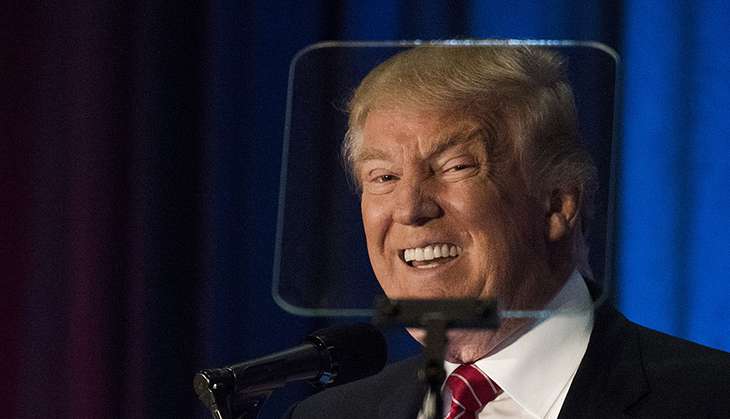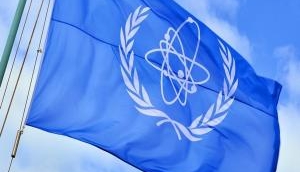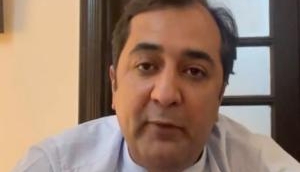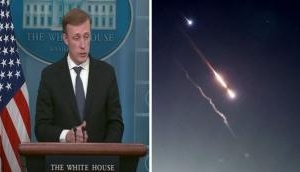A Trump presidency would spell disaster for the Paris climate agreement

The upcoming US presidential election could make or break the Paris climate agreement.
Unlike the previous Kyoto Protocol, the entire Paris Agreement (which is yet to enter into force) was shaped to allow the US to legally join through a presidential-executive agreement. The lack of binding targets for emissions cuts or financing means that the agreement just needs President Barack Obama's approval, rather than a majority vote in the US Senate.
It was a politically expedient move that I predicted in a paper earlier last year. Clearly the world has learned, for better or for worse, from the experience of the Kyoto Protocol, which the US never ratified due to the politically divided Senate.
But watering down the treaty to allow US participation is a risky strategy. Rather than relying on strong rules or ambition, the Paris Agreement depends on legitimacy through universal participation. With enough countries on board there is hope that it could change investment and policy patterns across the world.
That legitimacy hinges on US participation, and Obama will not determine the continued involvement of the US. The November election will decide what role the US plays in the agreement.
The Trump card
I suggested in a recent paper that a presidency under a Republican candidate such as Donald Trump could be fatal to the Paris Agreement. The damage could be done on two counts: the US withdrawing from the agreement and/or rescinding its domestic actions and targets.
Trump has already been vocal about his intention to "cancel" or "renegotiate" the agreement. However, some have claimed that having the agreement enter into force before November would bind Trump to the agreement for at least three years (due to one clause in the agreement).
Entry into force essentially means the agreement becomes operational and has legal force under international law. This would require 55 countries accounting for at least 55% of global greenhouse gas emissions (so far 22 countries representing 1% of global emissions have signed). However, there are three problems with this simple analysis.
First, it is unlikely that the Paris Agreement will enter into force before the inauguration of the next US president. While US ratification of Paris only requires the approval of Obama, for other countries the process is much more strenuous and time-consuming. Having 55 countries and at least three of the biggest emitters in the world ratify the agreement in the next six months is a high expectation. The Kyoto Protocol took eight years to go from agreement to entry into force.
Second, Trump could simply drop out of the United Nations Framework Convention on Climate Change, the overarching treaty under which Paris was created. This would take only a year and would lead to automatic withdrawal from Paris. Dropping out of the entire climate negotiations would generally seem like an extreme move. However, for a loose cannon like Trump it may be just another day in the White House.
Third, Trump would not need to withdraw officially to throw the agreement into chaos. Refusing to send a US delegation to the negotiations, or simply reneging on the US's national climate target would do just as much, if not more, damage than withdrawing.
And let's be clear, a Trump presidency would mean the US would miss its domestic climate targets.
Analysis by Climate Action Tracker suggests that the US would need additional measures to meet its pledge of reducing emissions by 26-28% on 2005 levels by 2025. This is still the case even if the Obama administration's Clean Power Plan is carried out.
Trump will be further weakening, rather than strengthening, climate action. The Republican platform on energy can be roughly summarised as "drill baby, drill". It promises to approve the Keystone XL pipeline, maximise use of domestic fossil fuel reserves as part of an "all of the above energy policy" and rein in the powers of the Environmental Protection Agency (EPA).
Is there anything the Paris Agreement could do to stop a renegade US under Trump?
Unfortunately not. The agreement lacks any measures to deal with countries outside the agreement and has only a "non-adversarial and non-punitive" compliance mechanism. Paris has far fewer teeth than the Kyoto Protocol.
A rogue US missing its targets with no consequences could be a fatal blow to the legitimacy of Paris - it would showcase to the world just how weak the agreement truly is.
Clinton's climate
It's clear that Trump would be an unmitigated disaster for the Paris Agreement, but what would Clinton mean for the climate?
The impact of a presidency under Democratic candidate Hillary Clinton is more difficult to predict. In the short term it is likely to be business-as-usual for the climate talks.
Clinton is a supporter of the Paris agreement, having declared in her keynote speech to the Democratic National Convention: "I'm proud that we shaped a global climate agreement - now we have to hold every country accountable to their commitments, including ourselves." Under Clinton, the US would remain a party to the agreement or legally adopt it if Obama had not yet done so.
The bigger question is whether Clinton will drive action to ensure the US increases its targets. The current Democratic platform gives hope that she will.
The platform calls for a second world war-style mobilisation to address climate change. It explicitly calls for a price on carbon and aims for 50% of US electricity generation to be from "clean energy" sources within a decade.
However, Clinton is by no means bound by the party platform, which has been moulded to appeal to supporters of the more pro-climate Bernie Sanders within the party. Clinton's climate credentials have been called into question, particularly with her controversial support of fracking.
It is also uncertain how much Clinton could do without congressional support. Arguably, Obama is already pushing the limits of presidential powers. Indeed, the Clean Power Plan is being contested in the Supreme Court.
A Clinton administration will likely do little to hinder climate action, but it also looks unlikely to take the drastic action needed to put the world on track to limiting global warming to 1.5℃ or 2℃.
Ultimately, the reason for Paris's success may prove to be its undoing. Relying on the goodwill of a single president is a short-sighted gamble. Come November, the world may once again have a heavy price to pay for investing so much hope in US leadership.
This article was originally published on The Conversation. Read the original article.
First published: 20 August 2016, 12:01 IST





![BJP's Kapil Mishra recreates Shankar Mahadevan’s ‘Breathless’ song to highlight Delhi pollution [WATCH] BJP's Kapil Mishra recreates Shankar Mahadevan’s ‘Breathless’ song to highlight Delhi pollution [WATCH]](http://images.catchnews.com/upload/2022/11/03/kapil-mishra_240884_300x172.png)

![Anupam Kher shares pictures of his toned body on 67th birthday [MUST SEE] Anupam Kher shares pictures of his toned body on 67th birthday [MUST SEE]](http://images.catchnews.com/upload/2022/03/07/Anupam_kher_231145_300x172.jpg)






